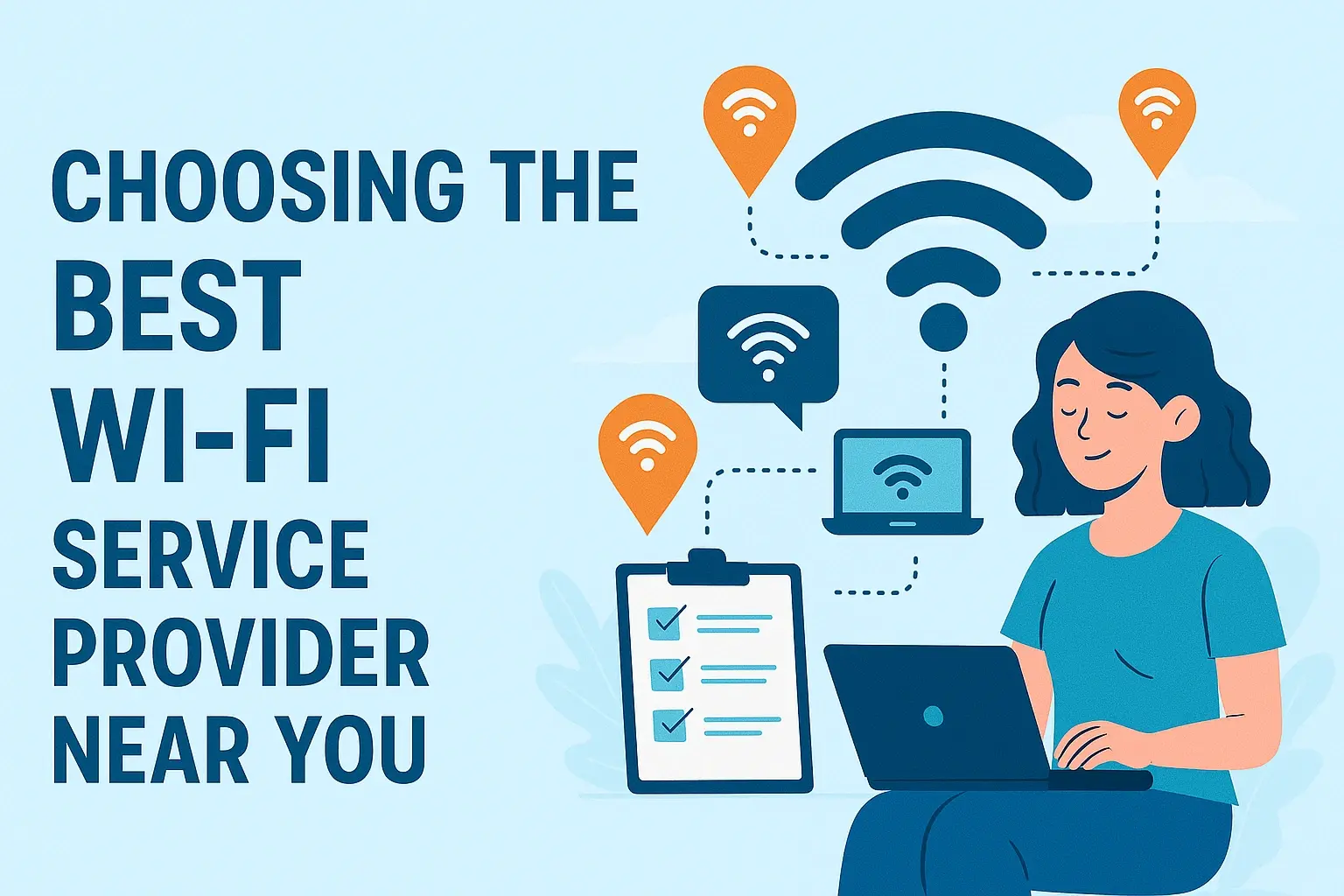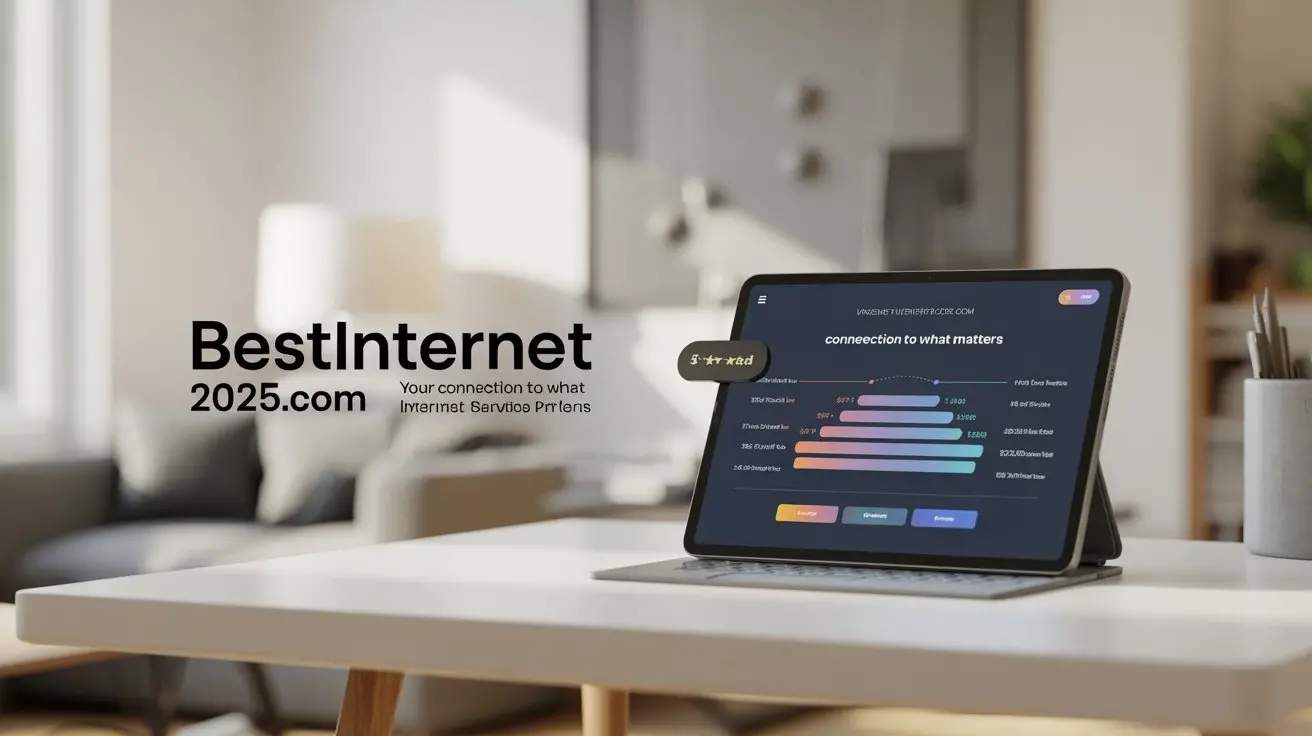How Much Internet Speed Do I Need

The best internet speeds for your household are between 100–200 Mbps. These will handle common uses like streaming and video chat, but if you want to do higher amounts of downloading or have more than 5 people using it at once, then 200Mbps might be better as well, since upload capacity is important too, especially when things need fast reaction times such as playing games online.
For instance, upload capacity and reaction time when dealing with users on your network who may need different levels or types of service from what is otherwise available within their home environment, by way of increased bandwidth needs such as gaming over Wi-Fi connections.
WiFi interference and slowdowns can cause your download speed to be anywhere from 20–50% slower than what you're experiencing. To account for this, the WiFi network must have a slightly faster connection than what will be needed at home or in any other location where there may not always be an internet source available, such as on an airplane flight.
Internet speeds can be confusing. Here is a simple guide to help you determine what kind of connection your home needs:
A good speed for watching videos, sending emails, and chatting on Facebook would be around 2Mbps (megabytes per second). If more data capacity is necessary, then 10 Mbps or higher should do the trick! The average person only uses about 100GB each month, so if they want unlimited access without having an extra bill coming out every 30 days, it's best not to download anything unless necessary.
| Internet Speed | Users Supported | Speed Summary |
| 25 Mbps | 1-2 |
Basic |
| 100 Mbps |
3-4 |
Average |
| 200 Mbps |
4-5 |
Fast |
| 500 Mbps |
5+ |
Very Fast |
If you're trying to figure out how many users and devices are using WiFi in your home, you should take a look at our bandwidth calculation tool. If it's running slower than normal, there could be something wrong with that network connection—or maybe just congestion from other people connecting at once.
You may also want to think about learning some basics on extending networks so they don't go down when everyone wants online simultaneously!
How Much Speed Do I Need?
Here are some general download speed requirements based on everyday online activities:
-
Check email and browse the web: 1-5 Mbps minimum
-
Stream HD content: 15-25 Mbps minimum
-
Stream 4K content and play competitive online games: 40-100 Mbps minimum
-
Stream 4K content, play online games, and download very large files: 200+ Mbps minimum
What is a Good Internet Speed?
The internet speed is measured in megabits per second (Mbps). A user with a good internet speed will have enough bandwidth to download or upload files at a reasonable pace.
Broadband is a necessary component of today's lifestyle, and it doesn't have to be expensive. The average family needs at least 25Mbps for the internet speed that they need; however, they can get by with as little as 3 Mbps upload if their household size isn’t too large (a single person). For those looking into more affordable options, the 100-200+Mbps tier offers good value without compromising on network capacity!
What is a Fast Internet Speed?
A fast internet speed can be defined as the rate of data transfer over a network. The higher the data transfer rate, the faster you can browse web pages, download files or watch videos on your phone.
An internet speed of 10 Mbps will let you download a 2GB movie in about 30 minutes. Whereas an internet speed of 100 Mbps will let you download the same 2GB movie in about 3 minutes.
In the past few years, people have been demanding faster internet speeds. And with the introduction of new technologies and devices, they can experience faster internet speeds at a lower price.
A fast internet speed is referred to as a broadband connection that is capable of downloading data at a rate of 50 megabits per second or more. This allows you to download an HD movie in about 8 minutes and stream Netflix in high definition.
The broadband connection has also become cheaper with the introduction of new technologies such as fiber optics and satellite connections, which provide faster internet speeds at lower prices.
What Is the Difference Between Upload and Download Speed?
Upload speed is the rate at which your device uploads data to the internet. Download speed is the rate at which your device downloads data from the internet. Upload and download speeds are measured in megabits per second (Mbps) or kilobits per second (Kbps).
The difference between upload and download speeds is that download speeds are measured in megabits per second, while uploads are measured in kilobits per second. The higher your upload speed, the more data you can send to an outside party in a given amount of time. The more you have of this capacity, the more efficiently you can transfer high-bandwidth content like photos and videos on social media sites.
How Fast is 25 Mbps?
With our Goldilocks-like 25 Mbps plan, you won't have to worry about lag or slow speeds. For a small household of light internet users who only use the web occasionally and sporadically (as opposed to daily), this will be just enough bandwidth for their needs without being overburdened with expensive monthly data plans they don’t need!
Here are some things you can expect from 25 Mbps:
-
Stream Netflix and YouTube at 1080p on one or two devices without buffering
-
Play most online games without lag
-
Almost zero wait time for loading most webpages
Best Internet Speeds For Streaming
The internet is the future. It has become a necessity that we cannot live without. Like many other things, internet speeds have also increased over the years, and with better internet connectivity, the world as we know it is transforming gradually.
What’s more, people today are demanding more speed and data as they want to stream more content on their phones and laptops. The quality of videos and movies is constantly increasing, and so does the internet speed.
How Much Internet Speed Do I Need for Netflix?
When you think about how much internet speed you need for Netflix, you might just think that the faster the better. The truth is that it depends on other factors like your device, the quality of the video encoding, and the distance from the server.
Netflix recommends a download speed of 5 megabits per second (Mbps) to stream HD-quality video. If your broadband connection is less than this, you will experience a significant decrease in video quality.
If you have a bandwidth of more than 10 Mbps, then Netflix recommends that you set your streaming quality to the highest level possible. However, if you have a bandwidth of fewer than 10 Mbps, then setting your streaming quality to medium or low might be necessary for better performance.
In conclusion, it is important to know how much Internet speed you need for Netflix to get the best viewing experience with them.
Best Internet Speed for Gaming
Online gaming is one of the few activities that require a fast upload speed. This is because you're uploading your actions in-game to other players, so they can see and interact with what's happening on their screens at any moment!
How Much Internet Speed Do I Need for Gaming?
If you are looking for a gaming experience with zero lag, zero latency, and high-quality graphics, you need an internet speed of at least 25 Mbps.
The average American household connects to the internet at about 12 Mbps. That's more than enough for sending emails or watching videos on YouTube. However, if you're playing games with your friends online - Minecraft for example - then you need an internet speed of 25+Mbps.
Ping and Latency: Does It Matter?
Latency is the measure of how quickly you can “ping" a server. Ping alone often means to hail something, but in this case, it should be used interchangeably with Latency and has nothing at all to do with speed! A "ping" could simply mean calling out for someone or alerting them that there's somebody nearby who wants their attention - which would then make our word choice more appropriate by describing what we want instead of just announcing ourselves as soon as possible like some kind of pesky inner-city crier constantly crying into life wastes while everyone else ignores him/her because hey –we're busy right.
We've all had those moments when our internet connection is too slow to do anything. But what about competitive gamers? Latency can have a huge impact on gameplay performance, especially if you're trying your best and losing because of an ISP that's not up-to-date with modern technologies like fiber optic cables or cable connections! While there are varying degrees in which these problems may occur (some users just see more sluggish speeds than others), it always pays off for them to live within reachable distance from at least two high-speed providers as this will help reduce delays caused by congestion on nearby networks.
Mbps vs Gbps: What’s the Difference?
-
One Mbps: one Megabit per second
-
One Gbps: one Gigabit per second, or one thousand Megabits. (1 Gbps is the maximum for most home Internet plans, so you will often see fiber providers advertise “gigabit.
When you’re shopping for internet service, speed is of utmost importance. After all, even if the most reliable provider in town offers your household a stable connection with ample upload capacity and low latency (think: fast download speeds), it could still be too slow when there are multiple users on one account trying to use their devices at once or individuals who want different things from the same network simultaneously like gaming sessions vs streaming video feeds during primetime hours while daddy's watching football game after work!
In the race for faster internet, you'll find providers are offering gig-speed plans. So what does this mean? It means that these high-speed connections can deliver speeds up to 1 Gbps! But before selecting a plan based on how fast it is (Mbps), make sure to know about all of your options and which type will work best with everything else in play like bandwidth needs or cost savings versus other alternatives - there may be another factor at play here than just speed alone when deciding between them.
Bits per second explained.
The data rate of your internet connection is measured in bits per second (bps). As data rates increase, it’s easier for providers and equipment manufacturers to express speeds by the thousands.
Kilobit – One kilobit is equal to 1,000 bits per second (Kbps)
Megabit – One megabit is equal to 1,000 Kbps or one million bits per second (Mbps)
Gigabit – One gigabit is equal to 1,000 Mbps, one million Kbps, or one billion bits per second (Gbps)
Why Does Internet Speed Vary Per Location?
The reason why internet speed varies from location to location is because of the type of network being used. The two types of networks are wired and wireless. Wired networks have a physical connection to the internet, which gives it a faster and more stable connection. On the other hand, wireless networks do not have a physical connection, instead they use radio waves and satellites, which makes them slower and more unreliable than wired connections.
Some other reasons why internet speed varies from location to location are due to the distance between the user and the server, how many users are using Wi-Fi at once, whether or not there is congestion on broadband lines, fiber optic cables, etc., etc.
How Can I Calculate My Upload and Download Speed?
There are a number of ways that one can calculate their Internet speed. One way is to use an Internet speed test website. Many websites offer this service for free. The process involves running the test and then waiting for the results to show up. The results will show the upload and download speeds in megabytes per second (Mbps).
Some Internet Service Providers also offer a free home page with an Internet speed test as well as other tools such as email, web browsing, and chat for those who have subscribed to their services. One can compare their bandwidth with these ISPs and choose which one they want to subscribe to based on the speeds and prices offered.
Which providers offer Gigabit speeds?
Many cable and fiber-optic ISPs provide gigabit speeds in select areas, most commonly in and around major cities.
AT&T – Internet 1000 with speeds up to 1,000 Mbps
Centurylink – Fiber Gigabit with speeds up to 1,000 Mbps
Cox– Gigablast with speeds up to 1,000 Mbps
Mediacom– Internet 1 Gig with speeds up to 1,000 Mbps
Optimum– Internet 1 Gig with speeds up to 940 Mbps
Spectrum– Internet GIG with speeds up to 940 Mbps
Suddenlink– Internet 1 Gig Unlimited Data with speeds up to 940 Mbps
Verizon Fios – Fios Gigabit Connection with speeds up to 940 Mbps
Windstream – Kinetic Gig with speeds up to 1,000 Mbps
Xfinity– Gigabit Pro with speeds up to 2,000 Mbps
The Bottom Line: 25 Mbps Is the Minimum Speed for Modern Households
The FCC has set the national broadband goal of ensuring that 100 million Americans will have access to broadband with download speeds of at least 25 Mbps and uploads of at least 3 Mbps by 2020.
25Mbps is not a very big number. It’s enough to stream a video from YouTube or Netflix, but not from high-quality 4K streaming services like Hulu Plus.
This speed is good for web browsing, emailing, and Facebook. It’s also perfect for uploading photos to Facebook or Instagram without the wait time you get with 3G/4G networks.
Call on (855) 210-8883 for high-speed internet in your area.





